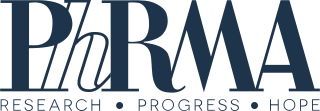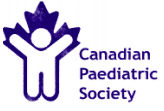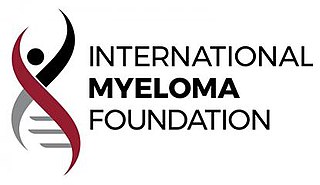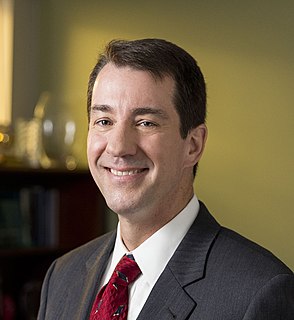Related Research Articles

Pfizer Inc. is an American multinational pharmaceutical and biotechnology corporation headquartered on 42nd Street in Manhattan, New York City. The company was established in 1849 in New York by two German entrepreneurs, Charles Pfizer (1824–1906) and his cousin Charles F. Erhart (1821–1891).

The American Psychiatric Association (APA) is the main professional organization of psychiatrists and trainee psychiatrists in the United States, and the largest psychiatric organization in the world. It has more than 37,000 members are involved in psychiatric practice, research, and academia representing a diverse population of patients in more than 100 countries. The association publishes various journals and pamphlets, as well as the Diagnostic and Statistical Manual of Mental Disorders (DSM). The DSM codifies psychiatric conditions and is used mostly in the United States as a guide for diagnosing mental disorders.

Pharmaceutical Research and Manufacturers of America, formerly known as the Pharmaceutical Manufacturers Association, is a trade group representing companies in the pharmaceutical industry in the United States. Founded in 1958, PhRMA lobbies on behalf of pharmaceutical companies. PhRMA is headquartered in Washington, DC.

The National Alliance on Mental Illness (NAMI) is a United States-based nonprofit organization originally founded as a grassroots group by family members of people diagnosed with mental illness. NAMI identifies its mission as "providing advocacy, education, support and public awareness so that all individuals and families affected by mental illness can build better lives" and its vision as "a world where all people affected by mental illness live healthy, fulfilling lives supported by a community that cares". NAMI offers classes and trainings for people living with mental illnesses, their families, community members, and professionals, including what is termed psychoeducation, or education about mental illness. NAMI holds regular events which combine fundraising for the organization and education, including Mental Illness Awareness Week and NAMIWalks.
The American Medical Student Association (AMSA), founded in 1950 and based in Washington, D.C., is an independent association of physicians-in-training in the United States. AMSA is a student-governed, national organization. They have a membership of 68,000 medical students, premedical students, interns, medical residents, and practicing physicians from across the country.

The Canadian Paediatric Society (CPS) is a national association of paediatricians.
The Alliance for Aging Research is a non-profit organization based in Washington, D.C., that promotes medical research to improve the human experience of aging. Founded in 1986 by Daniel Perry, the Alliance also advocates and implements health education for consumers and health professionals.
Health advocacy or health activism encompasses direct service to the individual or family as well as activities that promote health and access to health care in communities and the larger public. Advocates support and promote the rights of the patient in the health care arena, help build capacity to improve community health and enhance health policy initiatives focused on available, safe and quality care. Health advocates are best suited to address the challenge of patient-centered care in our complex healthcare system. The Institute of Medicine (IOM) defines patient-centered care as: Health care that establishes a partnership among practitioners, patients, and their families to ensure that decisions respect patients’ wants, needs, and preferences and that patients have the education and support they need to make decisions and participate in their own care. Patient-centered care is also one of the overreaching goals of health advocacy, in addition to safer medical systems, and greater patient involvement in healthcare delivery and design.
Patient advocacy is a process in health care concerned with advocacy for patients, survivors, and caregivers. The patient advocate may be an individual or an organization, often, though not always, concerned with one specific group of disorders. The terms patient advocate and patient advocacy can refer both to individual advocates providing services that organizations also provide, and to organizations whose functions extend to individual patients. Some patient advocates work for the institutions that are directly responsible for the patient's care.

The Alliance for Retired Americans (ARA) is a 501(c)(4) non-profit organization and nonpartisan organization of retired trade union members affiliated with the AFL-CIO, which founded it in 2001. The group's membership also includes non-union, community-based activists. Its predecessor organization was known as the National Council of Senior Citizens (NCSC).
The Crohn's & Colitis Foundation (CCF) is a volunteer-driven non-profit organization dedicated to finding cures for Crohn's disease and ulcerative colitis and improving the quality of life of children and adults affected by these digestive diseases. Founded by Shelby Modell and Irwin M. Rosenthal, and formerly known as National Foundation for Ileitis and Colitis and Crohn's and Colitis Foundation of America, it was incorporated on December 17, 1965. CCF has more than 50,000 members, served by the national headquarters, as well as over 40 chapters nationwide.

The Arthritis Foundation is a nonprofit organization that is dedicated to addressing the needs of people living with arthritis in the United States. There are more than 50 million adults and 300,000 children living with arthritis, the nation's leading cause of disability. The Foundation works to provide information and resources, access to care, advancements in science and community connections.

The National Organization for Rare Disorders (NORD) is an American non-profit organization aiming to provide support for individuals with rare diseases by advocating and funding research, education, and networking among service providers. It was founded in 1983 by Abbey Meyers, along with individuals and rare diseases leaders of rare disease support groups, and it is a 501(c)3 tax exempt organization.
The Patient-Centered Primary Care Collaborative (PCPCC) is a coalition of more than 1,000 organizations and individuals — employers, consumer and patient/family advocacy groups, patient quality organizations, health plans, labor unions, hospitals, physicians and other health professionals — that works to develop and advance an effective and efficient health system built on a strong foundation of preventative primary care reliant on the patient-centered medical home (PCMH) model. The PCHM model can be considered an approach to providing comprehensive care for children, youth, and adults. The PCPCC is dedicated to advancing team-based, comprehensive primary care in partnership with patients and their families and serves as a broad-based national advocacy organization for the primary care patient centered medical home, providing information and networking opportunities to facilitate support for the PCMH. They are headquartered in downtown Washington, D.C.

The National Association for Biomedical Research (NABR) is an American nonprofit organization, 501(c)(6), located in Washington, DC. NABR was formed in 1985 when the Association of Biomedical Research merged with the National Society for Medical Research The NABR advocates for the continued use of animals in biomedical research albeit in as humane a manner as possible.

The International Myeloma Foundation (IMF) is an American non-profit organization serving patients with myeloma, a cancer of plasma cells in the bone marrow. The IMF also provides support and information for family members, caregivers of myeloma patients, physicians and nurses. The organization is dedicated to improving the quality of life for all myeloma patients by focusing on four key areas: research, education, support, and advocacy.

The National Center for Advancing Translational Sciences (NCATS) was established in 2012 and is located in Bethesda, Maryland. NCATS is one of 27 institutes and centers of the US National Institutes of Health (NIH), an agency of the US Department of Health and Human Services. The mission of NCATS is to transform scientific discoveries into new treatments and cures for disease that can be delivered faster to patients. The budget provided to NCATS for fiscal year 2018 is $557,373,000.
The Reagan-Udall Foundation for the Food and Drug Administration is a private nonprofit (501c3) organization, created to support the mission of the U.S. Food and Drug Administration (FDA) to help equip FDA staff with the highest caliber, regulatory science and technology in order to enhance the safety and effectiveness of FDA regulated products. Although it was mandated by Congress in the Food and Drug Administration Amendments Act of 2007 to help support and promote FDA's regulatory science priorities, it is independent of the agency, with its own Board of Directors, staff and research agenda. The Reagan-Udall Foundation creates public–private partnerships to advance research in regulatory science, enhance medical decision making, and promote innovation. It also advances regulatory science through fellowships and other training programs, both for private scientists and for FDA staff.

Inspire is an Arlington, Virginia-based healthcare social network. It builds and manages online health communities for patients and caregivers, and connects patients to life science companies for the purpose of research.

The Joint Commission of Pharmacy Practitioners (JCPP) is the largest professional delegation representing the interests of pharmacists within the United States. JCPP represents 13 professional associations in the field of pharmacy, developing consensus policy directives for the profession. It is well known for the 2014 development of "The Pharmacists’ Patient Care Process," which provides broad, consensus guidelines for how clinical pharmacists should practice.
References
- ↑ "Healthfinder". U.S. Department of Health and Human Services. Retrieved 2009-01-04.
- ↑ "Membership Directory". National Health Council. Retrieved 2009-01-04.
- ↑ "The Power of Prevention" (PDF). Centers for Disease Control and Prevention. 2009.
- ↑ "For World Health League" (PDF). New York Times. 1922-10-09.
- ↑ "Fred Friendly Seminars to raise awareness about the issues surrounding chronic illness". Public Broadcasting System. Retrieved 2009-01-04.
- ↑ "Partner Organizations". National Institutes of Health. Retrieved 2009-01-04.
- ↑ Pear, Robert (1998-07-09). "Health Agency Urged to Review Spending". New York Times.
- ↑ "Kaiser Daily Health Policy Report". Kaiser Network.Org. Retrieved 2009-01-04.
- ↑ "National Center for Advancing Translational Sciences Cures Acceleration Network Review Board". www.ncats.nih.gov.
- ↑ "Patient-Centered Outcomes Research Institute's Advisory Panel on Patient Engagement". www.pcori.org. 24 July 2014.
- ↑ "Center for Information and Study on Clinical Research Participation (CISCRP) Board of Advisors". CISCRP.
- ↑ "International Alliance of Patients' Organizations Governing Board, Community Health Charities Board of Directors". www.patientsorganizations.org.
- ↑ "Better Business Bureau Wise Giving Alliance Board of Directors". Better Business Bureau.
- ↑ "Putting Patients First: Paving a Path to Useful CER". www.npcnow.or2013-09-30.
- ↑ "HR 3116, MODDERN Cures Act of 2013" (PDF). 113th Congress of the United States.
- ↑ "Letter to Congress" (PDF). National Health Council. 2010-01-20.
- ↑ "5 Principles for Putting Patients First Document" (PDF). National Health Council.
- ↑ "Letter to Secretary Designate Thomas A. Daschle" (PDF). Wall Street Journal Public Resources. December 2008.
- ↑ National Health Council Membership Committee, Executive Committee, and Board of Directors meeting minutes, 1985-89.
- ↑ "Our Members". National Health Council. Archived from the original on 2022-04-06. Retrieved 2022-04-06.